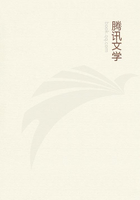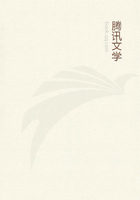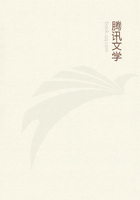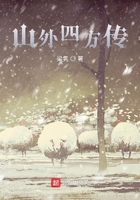Lakelands is not to be found in the catalogues of fashionable summer resorts.It lies on a low spur of the Cumberland range of mountains on a little tributary of the Clinch River.Lakelands proper is a contented village of two dozen houses situated on a forlorn, narrow-gauge railroad line.You wonder whether the railroad lost itself in the pine woods and ran into Lakelands from fright and loneliness, or whether Lakelands got lost and huddled itself along the railroad to wait for the ears to carry it home.
You wonder again why it was named Lakelands.There are no lakes, and the lands about are too poor to be worth mentioning.
Half a mile from the village stands the Eagle House, a big, roomy old mansion run by Josiah Rankin for the accommodation of visitors who desire the mountain air at inexpensive rates.The Eagle House is delightfully mismanaged.It is full of ancient instead of modern improvements, and it is altogether as comfortably neglected and pleasingly disarranged as your own home.But you are furnished with clean rooms and good and abundant fare: yourself and the piny woods must do the rest.Nature has provided a mineral spring, grape-vine swings, and croquet -- even the wickets are wooden.You have Art to thank only for the fiddle-and-guitar music twice a week at the hop in the rustic pavilion.
The patrons of the Eagle House are those who seek recreation as a necessity, as well as a pleasure.They are busy people, who may be likened to clocks that need a fortnight's winding to insure a year's running of their wheels.You will find students there from the lower towns, now and then an artist, or a geologist absorbed in construing the ancient strata of the hills.A few quiet families spend the summers there; and often one or two tired members of that patient sisterhood known to Lakelands as "schoolmarms."A quarter of a mile from the Eagle House was what would have been described to its guests as "an object of interest" in the catalogue, had the Eagle House issued a catalogue.This was an old, old mill that was no longer a mill.In the words of Josiah Rankin, it was "the only church in the United States, sah, with an overshot-wheel; and the only mill in the world, sah, with pews and a pipe organ." The guests of the Eagle House attended the old mill church each Sabbath, and heard the preacher liken the purified Christian to bolted flour ground to usefulness between the millstones of experience and suffering.
Every year about the beginning of autumn there came to the Eagle House one Abram Strong, who remained for a time an honoured and beloved guest.In Lakelands he was called "Father Abram," because his hair was so white, his face so strong and kind and florid, his laugh so merry, and his black clothes and broad hat so priestly in appearance.Even new guests after three or four days' acquaintance gave him this familiar title.
Father Abram came a long way to Lakelands.He lived in a big, roaring town in the Northwest where he owned mills, not little mills with pews and an organ in them, but great, ugly, mountain-like mills that the freight trains crawled around all day like ants around an ant-heap.And now you must be told about Father Abram and the mill that was a church, for their stories run together.
In the days when the church was a mill, Mr.Strong was the miller.There was no jollier, dustier, busier, happier miller in all the land than he.
He lived in a little cottage across the road from the mill.His hand was heavy, but his toll was light, and the mountaineers brought their grain to him across many weary miles of rocky roads.
The delight of the miller's life was his little daughter, Aglaia.That was a brave name, truly, for a flaxen-haired toddler; but the mountaineers love sonorous and stately names.The mother had encountered it somewhere in a book, and the deed was done.In her babyhood Aglaia herself repudiated the name, as far as common use went, and persisted in calling herself "Dums." The miller and his wife often tried to coax from Aglaia the source of this mysterious name, but without results.At last they arrived at a theory.In the little garden behind the cottage was a bed of rhododendrons in which the child took a peculiar delight and interest.It may have been that she perceived in "Dums" a kinship to the formidable name of her favourite flowers.
When Aglaia was four years old she and her father used to go through a little performance in the mill every afternoon, that never failed to come off, the weather permitting.When supper was ready her mother would brush her hair and put on a clean apron and send her across to the mill to bring her father home.When the miller saw her coming in the mill door he would come forward, all white with the flour dust, and wave his hand and sing an old miller's song that was familiar in those parts and ran something like this:
"The wheel goes round, The grist is ground, The dusty miller's merry.
He sings all day, His work is play, While thinking of his dearie."Then Aglaia would run to him laughing, and call:
"Da-da, come take Dums home;" and the miller would swing her to his shoulder and march over to supper, singing the miller's song.Every evening this would take place.
One day, only a week after her fourth birthday, Aglaia disappeared.When last seen she was plucking wild flowers by the side of the road in front of the cottage.A little while later her mother went out to see that she did not stray too faraway, and she was already gone.
Of course every effort was made to find her.The neighbours gathered and searched the woods and the mountains for miles around.They dragged every foot of the mill race and the creek for a long distance below the dam.
Never a trace of her did they find.A night or two before there had been a family of wanderers camped in a grove near by.It was conjectured that they might have stolen the child; but when their wagon was overtaken and searched she could not be found.

